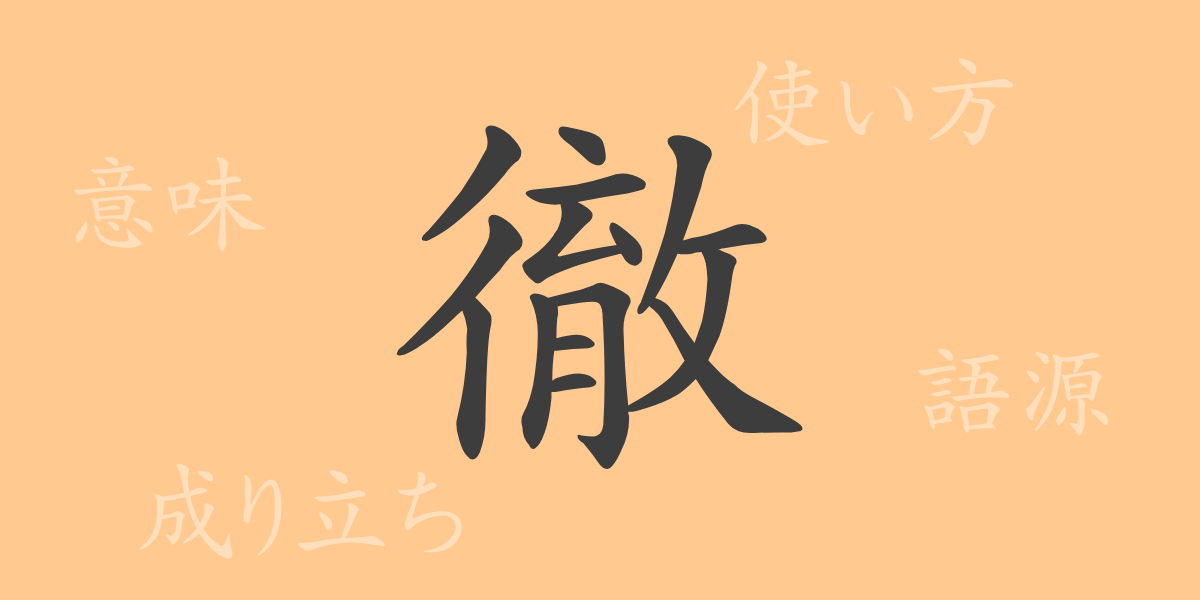The depth of meaning in Japanese kanji is a unique aspect of the language. ‘徹(テツ)’, while not commonly used in daily conversation, is a significant kanji in both everyday life and business contexts. This article explores the origins, meanings, usage, readings, and idiomatic expressions related to ‘徹’, inviting you to delve deeper into the intricacies of the Japanese language.
Origins of ‘徹(テツ)’
The kanji ‘徹’ originated in ancient China and was initially depicted as ‘彻’, symbolizing penetration. As it evolved into ‘徹’, it was introduced to Japan, gaining more abstract meanings. The character combines ‘彳’ (ぎょうにんべん), representing a standing person, and ‘育’, suggesting development, together reflecting the concepts of progression and permeation.
Meaning and Usage of ‘徹(テツ)’
‘徹’ conveys meanings such as ‘to go through’ and ‘to penetrate’, applicable both physically and metaphorically. For instance, ‘徹夜(テツヤ)’ refers to staying up all night, while ‘徹底(テッテイ)’ denotes thoroughness or exhaustive completion. ‘徹’ often implies determination and effort in achieving goals.
Readings, Stroke Count, and Radical of ‘徹(テツ)’
The kanji ‘徹’ is detailed as follows:
- Readings: On’yomi is ‘テツ’, no specific Kun’yomi.
- Stroke Count: 15 strokes in total.
- Radical: The radical is ‘彳(ぎょうにんべん)’.
Phrases, Idioms, and Proverbs Using ‘徹(テツ)’
Several Japanese idioms and phrases include ‘徹’, reflecting its various meanings:
- 徹夜(テツヤ): Spending the entire night awake.
- 徹底(テッテイ): Completeness or thoroughness in execution.
- 徹する(テッスル): To penetrate or thoroughly achieve something.
- 徹見(テッケン): To see through something deeply.
- 徹頭徹尾(テットウテツビ): From start to finish; consistently.
Conclusion on ‘徹(テツ)’
The kanji ‘徹’ encapsulates not only physical penetration but also the depth of mental and philosophical engagement, such as thoroughness and perseverance. Frequently used terms like ‘徹夜’ and ‘徹底’ demonstrate its practical applications in everyday life and business, illustrating the richness of expression in the Japanese language. This exploration of ‘徹’ enriches your understanding of Japanese, revealing the complexity and depth em

























